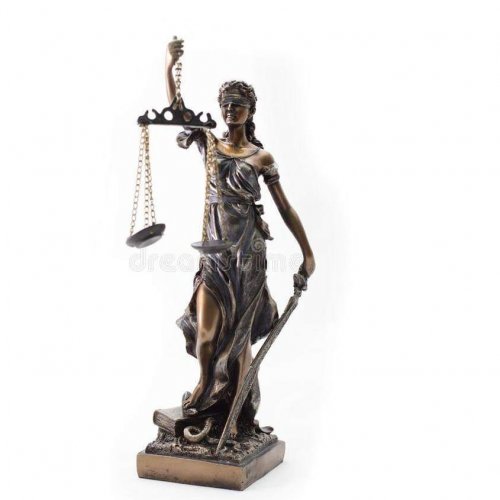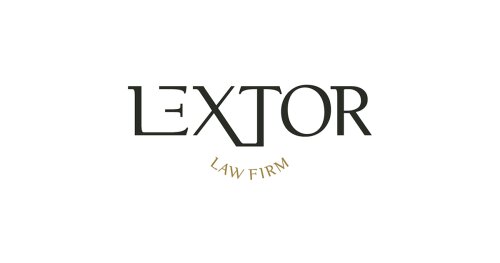Best Bankruptcy & Debt Lawyers in Greece
Share your needs with us, get contacted by law firms.
Free. Takes 2 min.
Or refine your search by selecting a city:
List of the best lawyers in Greece
Greece Bankruptcy & Debt Legal Questions answered by Lawyers
Browse our 1 legal question about Bankruptcy & Debt in Greece and read the lawyer answers, or ask your own questions for free.
- Legal assistance to communicate on behalf of a debtor with Debt Collection Agency in Athens, Greece
- Credit card debt was sold by the initiating bank to a debt collection company many years ago. Their attempts at making contact have been ignored by the debtor until now. A lawyer is required to negotiate on behalf of the debtor
-
Lawyer answer by Law Office Attorney SVETISLAV STOJANOSKI, LL.M.
ReI am from North Macedonia neighbor country of Greece, I can give you legal assistance to communicate with them. Regards, Svetislav Stojanoski Attorney at law
Read full answer
Greece Bankruptcy & Debt Legal Articles
Browse our 1 legal article about Bankruptcy & Debt in Greece written by expert lawyers.
- Debt Collection in Greece: Stop Harassment and Verify Debt
- In Greece, debt collectors must follow Law 3758/2009: calls only Monday-Friday 09:00-20:00, not on weekends or holidays, no more than one contact every two days, and no contact for 10 days after the debt becomes overdue. You can stop calls fast by telling them to communicate only in writing and... Read more →
About Bankruptcy & Debt Law in Greece
Bankruptcy and debt laws in Greece are designed to address the financial distress of both individuals and businesses. The legal framework provides mechanisms for debt restructuring and relief, aiming to balance the interests of creditors and debtors and allowing a fresh start for insolvent entities. Recent reforms have modernized the system, simplifying bankruptcy procedures and introducing more efficient ways to manage debts.
Why You May Need a Lawyer
There are several situations where you may require legal assistance in bankruptcy and debt matters in Greece:
- If you are overwhelmed with debt and considering filing for bankruptcy.
- If you need assistance understanding or negotiating with creditors.
- If you are facing foreclosure on your property.
- If you need help with debt restructuring plans to avoid bankruptcy.
- If you are a creditor seeking to recover outstanding debts from insolvent debtors.
- If you are navigating complex legal procedures associated with bankruptcy.
Having a lawyer can provide clarity on your situation, help protect your rights, and guide you through intricate legal proceedings.
Local Laws Overview
The Greek Bankruptcy Code outlines the procedures for managing insolvency, covering individual and corporate debtors. Key aspects include:
- Bankruptcy Declaration: Procedures for debtors to file for bankruptcy, including submission to the competent court.
- Debt Restructuring: Rehabilitation agreements and restructuring plans as alternatives to liquidation.
- Out-of-Court Settlements: Options available for amicable agreements between debtors and creditors.
- Pauper’s Law: Protection measures for individuals unable to pay their debts, allowing debt reductions and extended payment plans.
- Foreclosure Protections: Laws preventing foreclosure in certain circumstances and offering relief to debtors under financial hardship.
These laws are designed to provide fair solutions while maintaining the viability of the credit system and ensuring equitable treatment for all parties involved.
Frequently Asked Questions
What is the first step if I'm unable to pay my debts?
The first step is to assess your financial situation and consider negotiating with creditors. Seeking legal advice can help you understand your options, including debt restructuring or filing for bankruptcy.
Can I avoid foreclosure on my property?
Yes, Greece has provisions for protecting against foreclosure under certain conditions. Legal advice is crucial to understanding these protections and negotiating with your creditors.
What does debt restructuring involve?
Debt restructuring typically involves negotiating new payment terms with creditors, which may include extended deadlines or reduced interest rates, to avoid bankruptcy.
How does bankruptcy impact my credit rating?
Filing for bankruptcy can significantly affect your credit rating, making it more challenging to access credit in the future. However, it also offers a chance for a fresh financial start.
What are the differences between personal and corporate bankruptcy?
Personal bankruptcy typically deals with individual debts and involves different procedures than corporate bankruptcy, which handles business debts and operations. Legal advice is essential to navigate each case.
How long does the bankruptcy process take in Greece?
The duration varies depending on the complexity of the case, the court's schedule, and the cooperation between involved parties. It can range from several months to a few years.
Can a lawyer help me negotiate with creditors?
Yes, lawyers are skilled in negotiating with creditors to achieve more favorable terms, potentially avoiding bankruptcy altogether.
Are there any alternatives to bankruptcy?
Yes, alternatives include out-of-court settlements and restructuring agreements, which allow debtors to manage their debts without formal bankruptcy proceedings.
Do Greek bankruptcy laws apply to foreign individuals or companies?
Greek bankruptcy laws apply to entities operating in Greece, regardless of origin, but specific circumstances may require international legal consideration.
What happens after my bankruptcy case is finalized?
Post-bankruptcy, your remaining debts are either discharged or restructured. You can start rebuilding your financial status, but it's crucial to maintain good financial habits to prevent future insolvency.
Additional Resources
For more information, the following resources can be very helpful:
- Greek Ministry of Justice: Provides updates and information on legal policies and reforms.
- Consumer Ombudsman: Assists consumers in dispute resolutions with creditors.
- Bank of Greece: Offers insights and guidelines on financial institutions and credit policies.
These organizations can provide assistance, guidance, and information related to bankruptcy and debt management in Greece.
Next Steps
If you find yourself in need of legal advice concerning bankruptcy and debt in Greece, consider taking the following steps:
- Consult a Lawyer: Seek professional legal advice to understand your rights, obligations, and options.
- Gather Financial Documents: Collect all necessary documents, such as financial statements, contracts, and correspondence with creditors.
- Explore Debt Management Options: With legal assistance, explore viable alternatives to manage or restructure your debts.
- Communicate with Creditors: Open dialogue with creditors for potential negotiation of terms, facilitated by your lawyer if needed.
Initiating these steps can help you gain control over your financial situation and make informed decisions moving forward.
Lawzana helps you find the best lawyers and law firms in Greece through a curated and pre-screened list of qualified legal professionals. Our platform offers rankings and detailed profiles of attorneys and law firms, allowing you to compare based on practice areas, including Bankruptcy & Debt, experience, and client feedback.
Each profile includes a description of the firm's areas of practice, client reviews, team members and partners, year of establishment, spoken languages, office locations, contact information, social media presence, and any published articles or resources. Most firms on our platform speak English and are experienced in both local and international legal matters.
Get a quote from top-rated law firms in Greece — quickly, securely, and without unnecessary hassle.
Disclaimer:
The information provided on this page is for general informational purposes only and does not constitute legal advice. While we strive to ensure the accuracy and relevance of the content, legal information may change over time, and interpretations of the law can vary. You should always consult with a qualified legal professional for advice specific to your situation.
We disclaim all liability for actions taken or not taken based on the content of this page. If you believe any information is incorrect or outdated, please contact us, and we will review and update it where appropriate.
Browse bankruptcy & debt law firms by service in Greece
Greece Attorneys in related practice areas.
Browse bankruptcy & debt law firms by city in Greece
Refine your search by selecting a city.
















